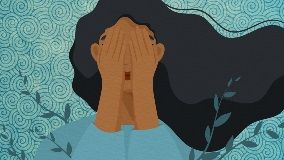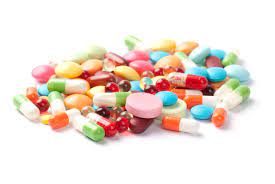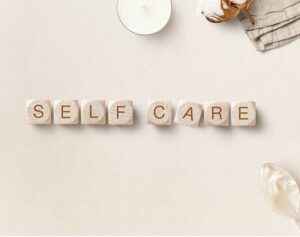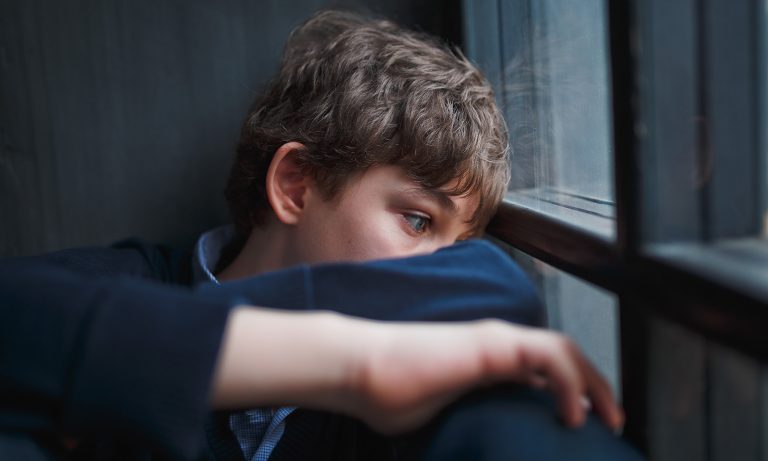Depression is a serious mental illness that affects millions of people each year. It can cause a person to feel sad and hopeless for an extended period of time, and it can be very difficult to overcome without help. If you think you may be suffering from depression, it is important to get help as soon as possible. In this blog post, we will discuss the signs of depression and how you can get help for yourself or someone you know.
Contents
Understanding Depression
 Depression is a serious medical illness. It’s more than just a feeling of being “down in the dumps” or “blue” for a few days. If you are one of the more than 20 million adults in the United States who have depression, the feelings do not go away. They persist and interfere with your daily life, making it hard to work, study, eat, sleep, and enjoy hobbies.
Depression is a serious medical illness. It’s more than just a feeling of being “down in the dumps” or “blue” for a few days. If you are one of the more than 20 million adults in the United States who have depression, the feelings do not go away. They persist and interfere with your daily life, making it hard to work, study, eat, sleep, and enjoy hobbies.
The simple meaning of depression is prolonged sadness, but it is much more complicated than that. Depression affects the way a person eats and sleeps, how they feel about themselves, and the way they think. It can lead to a variety of emotional and physical problems and can decrease a person’s ability to function at work or at home.
It is believed that it is caused by a combination of genetic, psychological, and environmental factors. People who have a family member with depression are more likely to experience it themselves. It is also more common in people who have experienced trauma or a major life event such as the death of a loved one, divorce, or job loss.
If you think you may be depressed, it’s important to see your doctor or mental health professional. Depression is a treatable illness, but it’s important to get help early. The sooner you start treatment, the better your chances for recovery.
Signs Of Depression
There are many signs of depression, and it’s important to be aware of them so you can get the help you need. The signs of depression are usually divided into three categories: physical, emotional, and behavioral. Let’s discuss each one in detail:
Physical
It is not uncommon for people with depression to experience physical symptoms. These can include:
- Fatigue
- Changes in appetite
- Weight loss or gain
- Insomnia or hypersomnia
- Aches and pains
- Slowed thinking and movements
These physical signs can be easy to overlook because they can also be caused by other things. For instance, fatigue can be a sign of depression but it can also be a symptom of an underlying medical condition. In fact, studies have found that people with depression tend to have more medical problems than those without depression.
Moreover, the physical signs of depression can often be chalked up to stress or “the blues.” However, if you are experiencing any of these signs for more than two weeks, it’s important to see a doctor or mental health professional.
Emotional
The emotional signs of depression are often the most noticeable. People with depression may feel:
- Sadness
- Hopelessness
- Anxiety
- Anger
- Guilt
- Worthlessness
- Loneliness
- Exhaustion
- Recklessness
It is often hard to pinpoint the exact cause of these emotions. However, they can be brought on by a life event such as a death or loss, relationship problems, work stress, or financial troubles. The emotional signs of depression can also be triggered by physical changes in the brain.
In fact, emotional signs can be the first sign that something is wrong. If you are feeling sad or hopeless, it is important to reach out for help. Depression is a treatable condition, and there are many resources available to get you the help you need.
Behavioral
 Along with physical and emotional, there are also behavioral signs of depression. For example, some of the behavioral symptoms include:
Along with physical and emotional, there are also behavioral signs of depression. For example, some of the behavioral symptoms include:
- Not taking care of yourself or your appearance
- Sleeping too much or not being able to sleep
- Eating too much or not enough
- Isolating yourself from friends and family
- Losing interest in activities that you once enjoyed
- Abusing drugs or alcohol
So, you can see there are a variety of symptoms and signs of depression. And, it’s important to remember that not everyone experiences all the same symptoms. Some people may only experience a few while others may experience many. If you are experiencing any of these symptoms, it’s important to reach out for help.
Depression is a treatable condition but it doesn’t go away on its own. If you think you may be depressed, the first step is to see your doctor or mental health professional. They can do a thorough evaluation and make a diagnosis. Once you have a diagnosis, you can work together to come up with a treatment plan that’s right for you.
How Does Depression Impact Life?
There are many ways that depression can impact a person’s life. Some of the negative consequences include:
Poor health
It is one of the most important things to pay attention to if you are depressed. Your physical health will suffer as a result of the mental toll that depression takes on your body. You may experience more aches and pains, have trouble sleeping, or lose your appetite. It is important to pay attention to these changes and talk to your doctor about them.
Relationship problems
There are few things more frustrating than feeling like you’re not being heard or understood. When you’re depressed, it can be hard to communicate with your partner or spouse. This can lead to arguments and conflict. Depression can also make it hard to enjoy time with friends and family. For example, you may not want to go out and socialize as much.
Decreased work/school performance
When you are depressed, it can show up in your work or school performance. You may start making more mistakes, have a hard time concentrating, or just not care about your work like you used to. If you’re usually an A student and all of the sudden you’re getting C’s, or if you’ve been fired from your job, depression might be to blame.
Increased use of alcohol or drugs
 Many people turn to substances like alcohol or drugs when they’re depressed. It’s a way to numb the pain and make it all go away, even if just for a little while. If you find that you’re using more alcohol or drugs than usual, or if you can’t stop using even though you want to, it’s a sign that you might be depressed.
Many people turn to substances like alcohol or drugs when they’re depressed. It’s a way to numb the pain and make it all go away, even if just for a little while. If you find that you’re using more alcohol or drugs than usual, or if you can’t stop using even though you want to, it’s a sign that you might be depressed.
So these are just a few of the negative consequences that you might face due to depression. If you’re experiencing any of them, it’s important to reach out for help. Depression is a serious illness, but it’s also treatable. There are many resources available to you, so don’t hesitate to seek out the help you need.
How To Get Help For Depression?
When it comes to getting help for depression, there are a few options. You can either see a therapist, or psychiatrist or take medication. Let’s take a look at each of these in a little more detail and discuss some of the treatment options:
Therapy
This is one of the most common forms of treatment for depression. It involves talking to a therapist about your thoughts, feelings, and experiences. This can be done in individual sessions or in group therapy. Also, there are several options for types of therapy, such as cognitive behavioral therapy (CBT), which is a more structured form of therapy that focuses on changing negative thinking patterns. Other forms of therapies include:
- Interpersonal therapy
- Psychodynamic therapy
- Behavioral therapy
If you’re thinking about seeing a therapist, it’s important to find one that you feel comfortable with. This is someone who you’ll be sharing some very personal things with, so it’s crucial that you feel like they’re someone you can trust. Once you’ve found a therapist that you click with, therapy can be an incredibly effective way to treat depression.
Medication
 It is not uncommon for people with depression to be prescribed medication. Antidepressants are the most common type of medication used to treat depression. They can take several weeks to start working and may cause side effects such as nausea, headaches, and insomnia. Some other options that may be prescribed by a doctor include:
It is not uncommon for people with depression to be prescribed medication. Antidepressants are the most common type of medication used to treat depression. They can take several weeks to start working and may cause side effects such as nausea, headaches, and insomnia. Some other options that may be prescribed by a doctor include:
It is important to remember that medication is not a cure for depression, but it can help to manage the symptoms. If you are taking medication for depression, it is important to follow your doctor’s instructions and attend all scheduled appointments. Some people may need to try several different medications before finding one that works for them.
Support groups
It is often helpful to share your experiences with others who are going through the same thing. This can help you feel less alone and more understood. There are many different types of support groups available, both in-person and online. Support groups are a great resource for finding new friends and receiving support from people who understand what you’re going through.
If you are not sure where to find a support group, your doctor or therapist may be able to help you. You can also search online or look in the phone book. With a little effort, you should be able to find a group that meets your needs. And soon you will be on your way to feeling better.
Self-help tips
 Along with professional help, there are several things you can do to help manage your depression.
Along with professional help, there are several things you can do to help manage your depression.
Start by educating yourself about the condition. Learning about what depression is, its causes, and how it can be treated will empower you and help you take control of your life.
It’s also important to take care of yourself physically. Depression can sap your energy, making it hard to take care of yourself. But exercise, eating right, and getting enough sleep can help ease depression and improve your mood.
Finally, reach out to others. Depression can make you feel isolated and alone, but talking to friends and family or joining a support group can help you feel better and give you a sense of belonging.
If you think you might be depressed, don’t wait to get help. Depression is a serious condition that can get worse if it’s not treated. Talk to your doctor or mental health professional about what you’re going through and how they can help. Getting treatment is the best way to feel better and start enjoying your life again.
Conclusion
Conclusively, you can see the signs of depression are not always easy to spot. Sometimes they masquerade as sadness or anger. And, because we all experience some level of these emotions regularly, it can be tough to know when they’ve become something more. But, if you’re concerned that you or someone you love may be dealing with depression, there are steps you can take.
However, you should keep in mind that only a professional can give you a diagnosis. But, if you’re struggling with some of the signs and symptoms we’ve discussed, it may be time to seek out help. Depression is a serious illness, but it’s also treatable. So do not wait to get the help you need.
You can also contact Therapy Mantra for more information and help. It is a platform that connects you with licensed therapists and counselors who can help you work through your depression. Our services are affordable, convenient, and confidential. Contact us today to learn more about how we can help you. You can also book an online therapy session or download our free Android or iOS app.


